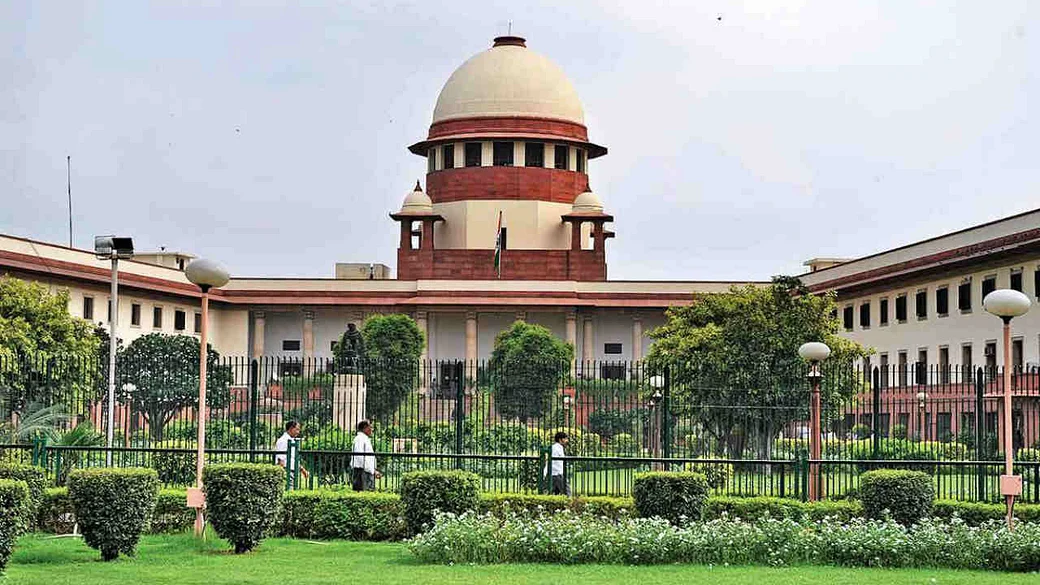Chief Justice of India (CJI) Sanjiv Khanna will receive the report on Friday, prepared by the Delhi High Court’s Chief Justice D.K. Upadhyaya, after a large amount of unaccounted cash was reportedly discovered at the residence of a high court judge in the national capital.
“The Chief Justice of the Delhi High Court, who had commenced his inquiry before the Collegium meeting on March 20, 2025, will be submitting his report to the Chief Justice of India today, i.e., on March 21, 2025. The report will be examined and processed for further and necessary action,” said a statement released by the Supreme Court.
According to media reports, a large sum of cash was discovered last week when a fire brigade arrived at the residence of Delhi HC’s Justice Yashwant Varma to extinguish a fire.
The Supreme Court’s press statement clarified that the proposal to transfer Justice Varma—who is the second-senior-most judge in the Delhi High Court—to his parent High Court, the High Court of Judicature at Allahabad (where he will rank ninth in seniority), is “independent and separate from the in-house inquiry procedure.”
“The proposal was examined by the Collegium comprising the Chief Justice of India (CJI) and four senior-most Judges of the Supreme Court on March 20, 2025, and thereafter letters were written to the consultee Judges of the Supreme Court, the Chief Justices of the High Courts concerned, and Justice Yashwant Varma. Responses received will be examined, and thereupon, the Collegium will pass a resolution,” the statement added.
“Misinformation and rumors are being spread regarding the incident at the residence of Justice Yashwant Varma,” the press statement said.
Under the “in-house procedure,” the Chief Justice of India (CJI) is authorized to receive complaints regarding the conduct of Supreme Court judges and High Court Chief Justices. Similarly, the Chief Justices of the High Courts are authorized to receive complaints against the conduct of High Court judges.
The Supreme Court, in its full-court meeting in May 1997, adopted two resolutions. The first resolution, “The Restatement of Values of Judicial Life,” lays down certain judicial standards and principles to be observed and followed by the judges of the Supreme Court and High Courts. The second, “in-house procedure,” provides for taking suitable remedial action against judges who do not follow universally accepted values of judicial life, including those included in the Restatement.
According to the Supreme Court judgment in Indira Jaising v. Supreme Court of India, the report of a committee constituted under the “in-house procedure” is not to be made public.
The existing Memorandum of Procedure (MoP) provides that the proposal for the transfer of High Court judges is initiated by the CJI in consultation with four senior-most puisne judges of the Supreme Court, commonly known as the Collegium. The MoP further provides that the CJI is also expected to take into account the views of the Chief Justice of the High Court from which the judge is to be transferred, as well as the Chief Justice of the High Court to which the transfer is to be effected, besides taking into account the views of one or more Supreme Court judges who are in a position to offer insights.
Born in January 1969, Justice Varma earned a law degree from Rewa University and primarily practiced civil law, handling a wide range of matters related to constitutional issues, industrial disputes, corporate law, taxation, environmental law, and allied fields. He served as Chief Standing Counsel for the State of UP from 2012 till August 2013, when he was designated as ‘senior advocate’ by the Allahabad High Court. Justice Varma was elevated as an Additional Judge in October 2014 and was transferred to the Delhi High Court in October 2021.
At the Delhi High Court, Justice Varma is currently the second-senior-most judge dealing with writ petitions challenging the constitutional validity of any law, statutory rule, regulation, or notification pertaining to municipal tax. As per the latest roster, the Justice Varma-led division bench, which also comprised Justice Harish Vaidyanathan Shankar, dealt with sales tax cases, GST cases, Letters Patent Appeals, regular First Appeals (Original Side), Company Appeals, matters to be heard by the Commercial Appellate Division, etc.
(Inputs from IANS)




















